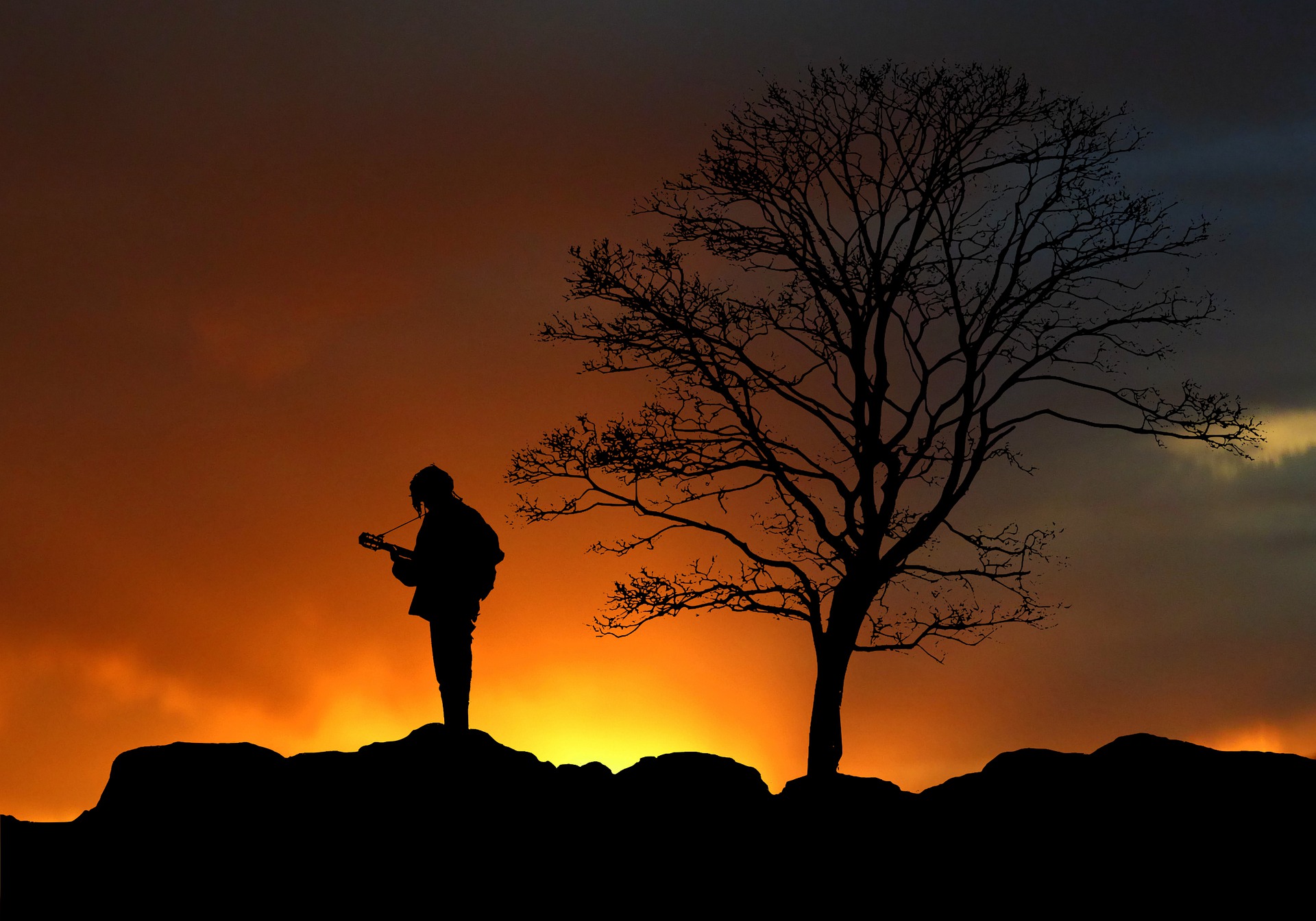
These summer nights, you're forgiven if that old Beatles song, “When I'm 64 84″ is rolling through your brain. That's because many Classic Rock superstars are one heckuva lot closer to 84 than they are to 64.
We should be thankful, plain and simple, that so many are healthy enough to be on the road during these summer months, entertaining us with the greatness of their catalogs of amazing songs. When I think back to what it was like to first be a fan, then a station employee, and finally, a programmer during this era, I am extremely thankful I was fortunate to have lived in the era and work for an amazing radio station (WRIF) owned by a great company (ABC) that allowed me to experience these moments up close and personal.
When young people ask me what it was like, I think most of us had an understanding and an appreciation we were living in a special time. With the Beatles, then the Stones, and a torrent of Brit brilliance from across the pond, the 60's were magical. And the 70's hit an amazing stride of rock n' roll proliferation. It wasn't just that the music was so good – it was about just how much there was to enjoy.
In the same way we participate in conversations about great shows and series we enjoy on Netflix, Hulu, FX, Apple TV, and all the others, the Classic Rock era gave us music to the 10th power. It seemed like an unstoppable avalanche of brilliance, made more special by the fact that pre-MTV (which debuted in 1981), 90% of the music was on the radio.
In years prior, these musicians made sporadic appearances on TV shows, and you could read about them in Rolling Stone. But it wasn't until “Saturday Night Live” in 1975 when producer Lorne Michaels programmed in a couple of live songs by Billy Preston and Janis Ian, two iconic artists of that time. Thus began a tradition of music in every show, interspersed between the skits, the snark, and the sarcasm.
Unlike today, however, where music is everywhere – streaming on umpteen channels and platforms, sliced and diced onto hundreds of satellite radio channels, a video fixture on YouTube, playing out of your TV or wireless speakers, or in your head on your AirPods – it only made sporadic appearances on other media beyond radio. When you called a radio station in the quest for a request, you truly could not hear that song anywhere else, unless of course you bought it.
Today, music is so ubiquitous, it has lost so much of its magic. No artist or group can play “hard to get” or reclusive anymore. They are everywhere – on myriad outlets, and on their band websites, fan clubs, and social media pages.
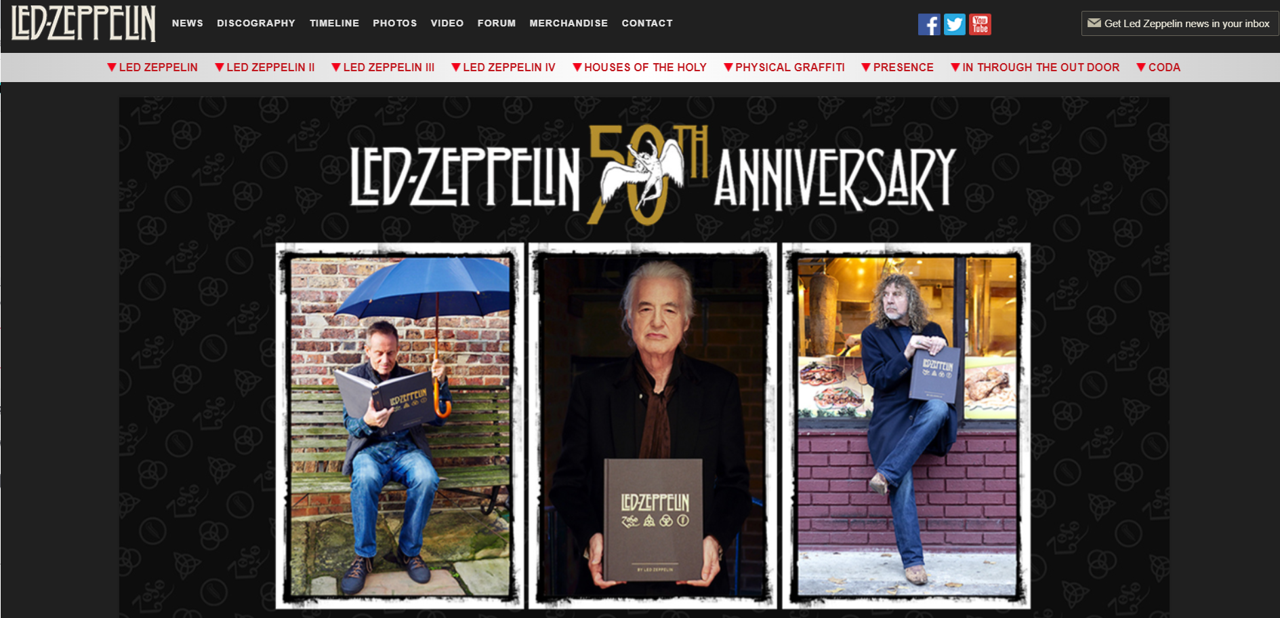
That's why this summer has already been one for the books. Yes, part of the magic is the COVID fade, making it possible to attend mass events, especially those outside, like stadium shows and festivals. If you're a fan of Classic Rock – or you're one of the genre's many Mt. Rushmore artists – this summer has been about making up for lost time.
When you're flirting with or have reached the Big 8-0 like Paul McCartney, Brian Wilson, Bob Dylan, and Ringo Starr – all of whom have blown past their chronological stop sign and are still touring – well, these are moments to savor.
That's especially true in an industry where those who have died young are legends. “The 27 Club” has long been a painful reminder of how so many rockers lived too hard and too fast. Life in the fast lane caught up with the likes of Janis Joplin, Jim Morrison, Jimi Hendrix, and so many others when they were still kids – today's Millennials.
hard and too fast. Life in the fast lane caught up with the likes of Janis Joplin, Jim Morrison, Jimi Hendrix, and so many others when they were still kids – today's Millennials.
And that's precisely why the celebration of so many icons still out on the road, playing their hearts out for us – and of course, for them – has made this time feel…well, miraculous.
So that's why Brandon Griggs' `last weekend read like the turd in the Classic Rock punchbowl. The title alone – “This summer marks the twilight of classic rock” – was enough to send those shivers down your spine. It reads like click bait for the AARP crowd, a “come on, I dare you” to read this cold blast of reality in an otherwise hot summer.
And it was as if Griggs he was warning us, “Don't have too much fun, guys and gals, because it won't last.
But then, nothing ever does.
No fewer than six of you sent me the column, kind of like throwing some chum in the water to see if I'll bite. My professional fate for nearly 40 years (among other things) has been defending Classic Rock music, the radio format, and its pop culture implications.
So, like Lucy with the football, say hello to the Charlie Brown of Classic Rock. I'm all in.
Griggs is a talented writer, and he sees all sides of the paradoxical Classic Rock trapezoid. After all, it's illogical. Townshend, McCartney, Roger Waters, Clapton, Elton, and their aging mates never fathomed they'd still be touring at the ages their dads and mums were collecting retirement, disability, and survivors benefits.
He reminds us that more than a century ago, the Who sneered “Hope I die before I get old.” And this summer, Pete, Roger, and the other members of this much-celebrated band hit the stage – despite the two frontmen being their seventies.
And who could have predicted that so many twenty and thirtysomethings would pay the exorbitant prices for these Classic Rock shows, their merch and the vinyl for their turntables? Or that teens at the mall would be proudly sporting Doors and Zeppelin t-shirts?
Griggs takes us on a meandering tour of the landscape, starting with Carlos Santana‘s collapse on stage here at Pine Knob outside Detroit, and then reminding us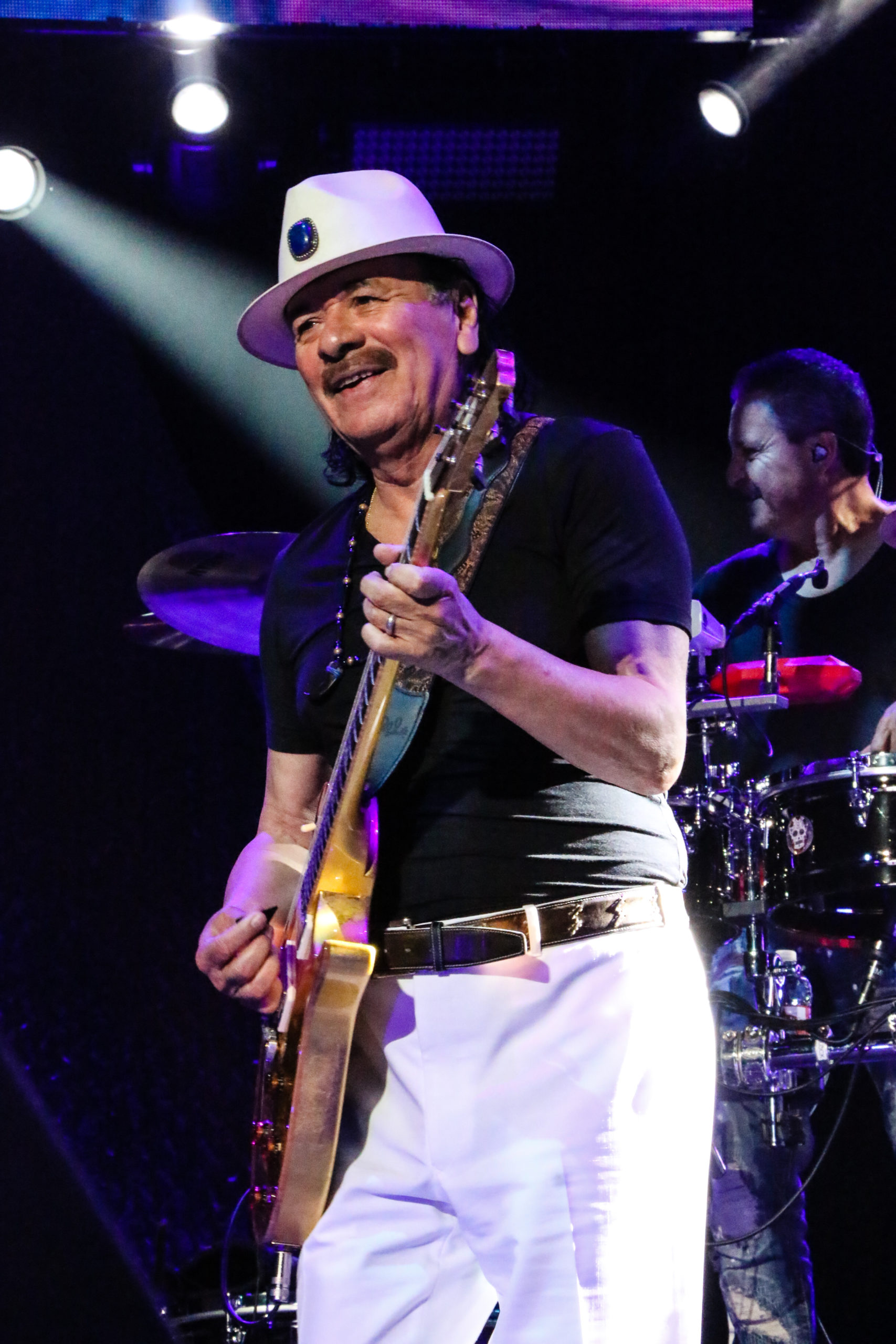 about how thrilling and majestic it is to witness rock n' roll history in this pandemic-scarred period we've collectively endured.
about how thrilling and majestic it is to witness rock n' roll history in this pandemic-scarred period we've collectively endured.
Then the rollercoaster ride heads back down as we're remind just how old these artists truly are, and that their deaths are likely imminent – if not sooner.
And then there's that sweeping gratitude for the fact that so many of them are still alive – Sly Stone, Bob Seger, even Ozzy. And they have somehow survived the ravages of the lifestyles they once embraced and embellished.
There's good news – Griggs lauds Classic Rock, the radio format, and remarks on its media omnipresence – on Spotiify, SiriusXM, or when you're with your Uncle Greg.
And in the next breath, the eulogy takes flight:
“As more rock legends die in the coming years, the last vestiges of an era will die with them,” Griggs cautions us. And yet the classical music patriarchs from centuries ago are still celebrated today – in recordings and in performances by symphony orchestras in every major metro in the word, the genre's equivalent of “tribute bands,” paying homage to Beethoven, Brahms, and Mozart.
Why wouldn't Classic Rock be celebrated in much the same way – a hundred years from now?
As he closes this schizophrenic analysis of Classic Rock and its iconic artists, Griggs laments that geriatric performers cannot do the things they used to do, but there is still much to celebrate during a summer where so much has gone seriously wrong. His kicker goes to the essence of how I see this period where so many Classic Rockers have strapped on that guitar strap, jumped on the tour bus, and given us indescribable joy:
“But they are still out there night after night, doing what they love. They have given us so much. We are lucky to have had them this long.”
Amen, Brandon Griggs.
Throughout Classic Rock's improbable journey on the radio waves these past decades, I have learned a great deal about this music and the impact it has on people, families, and even communities. During the terrible lows of the early weeks of the pandemic, Paul and I hooked up with David Fishof and Britt Lightning of “Rock n' Roll Fantasy Camp” fame to produce a series of virtual meet-ups with a series of classic artists that included Roger Daltrey (pictured), Alice Cooper, and other classic stars. Seeing and hearing the joy from fans as they got to see their heroes' studios, living rooms, and talk about the music was a priceless experience.
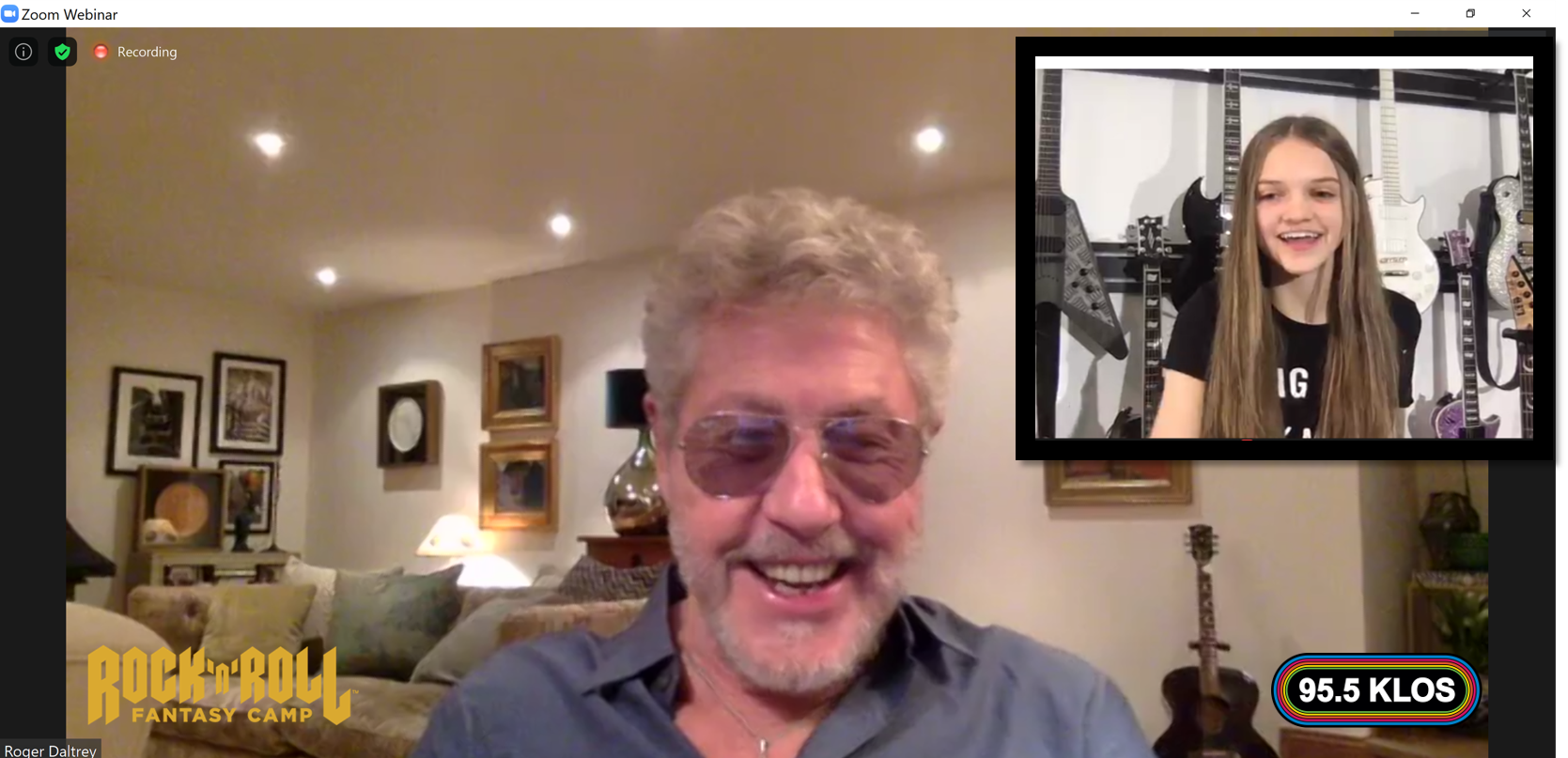
From the get-go, naysayers were worried about the ravages of repetition and burnout. After all, just how long would people stomach hearing this collection of classics. But like Beethoven's “Fifth” or the Mona Lisa, fans appreciate and celebrate the masters, whether they're named Lizst or Lennon, or Mercury or Mozart.
Back in the late 80's when Classic Rock songs started showing up in TV commercials and on movie soundtracks in abundance, a worried GM asked me if I was concerned about the music being overexposed. Like Griggs, my suggestion at the time, as well as today, is to simply go with the flow, and let these trends play out.
For many younger people and even adults who missed rock radio in the 60's and 70's, hearing Zeppelin's “Rock and Roll” spearheading a Cadillac campaign, or watching Tom Cruise dance to “Old Time Rock & Roll” in “Risky Business” has exposed the music to entirely new legions of fans. Or Walmart pitching “Black Friday” with the help of AC/DC?
Griggs brings up the bittersweet feeling that watching and listening to these once young stars now struggle to hit the high notes or the leg kicks are reminders of our own mortality. Some feels it's just sad to watch these artists fall short of their once-vibrant performances.
I get it. I endured this with B.B. King before he passed away in 2015 at 89. I loved watching the man sing the blues like no other, making his guitar “Lucille” talk.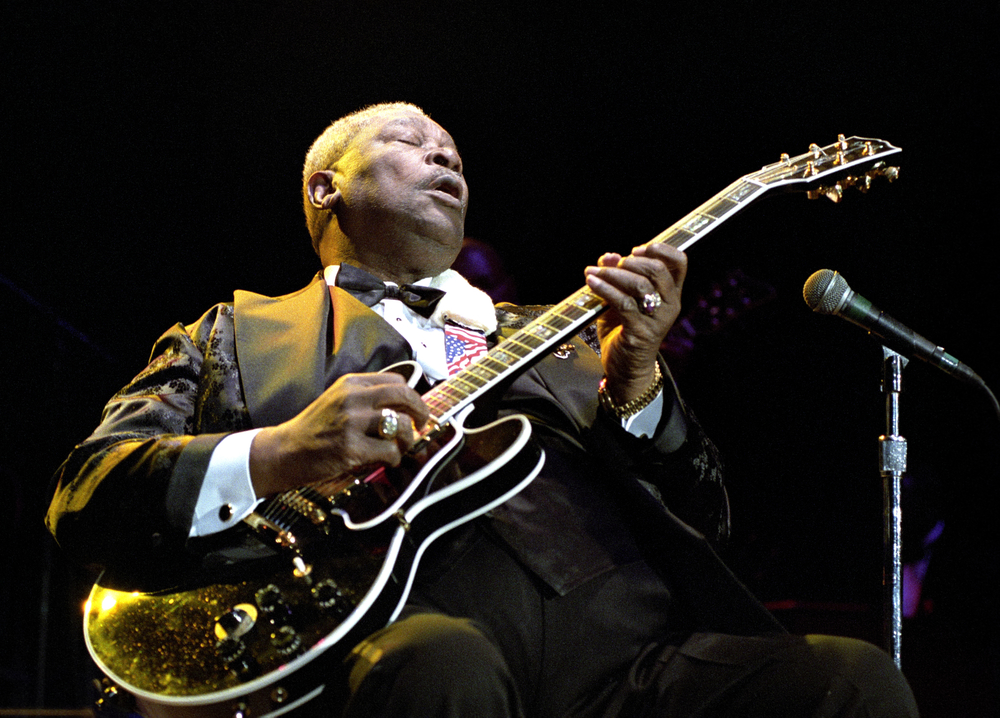 But in the later years, B.B. who suffered from diabetes, Alzheimer's, and other maladies, was a shadow of his former self in concert. He became tethered to his stool, and cut way back on his playing, saving his energy and stamina for the choruses. As a fan, it was sad, and I finally opted out of seeing him near the end of his touring career
But in the later years, B.B. who suffered from diabetes, Alzheimer's, and other maladies, was a shadow of his former self in concert. He became tethered to his stool, and cut way back on his playing, saving his energy and stamina for the choruses. As a fan, it was sad, and I finally opted out of seeing him near the end of his touring career
But on the other hand, so many Classic Rockers have been somehow able to summon up the energy to still bring in, despite their chronological ages that suggest a hammock rather than a “windmill.”
Elton John may be a bit creaky when he walks on and off the stage. But his touch on those “88's” and his powerful singing voice are intact, along with his band mates, most of whom have been with him since “Your Song.”
McCartney is an anomaly. His shows last hours, he's on his feet most of the night (when he's not sitting at the piano), and doesn't even visibly sip H2O during the show. If it's possible to still be the “cute Beatle” at 80, he has managed to pull it off.
And then there are the Stones, defying every law of aging possible. Or explain to me how Keith Richards is still here.
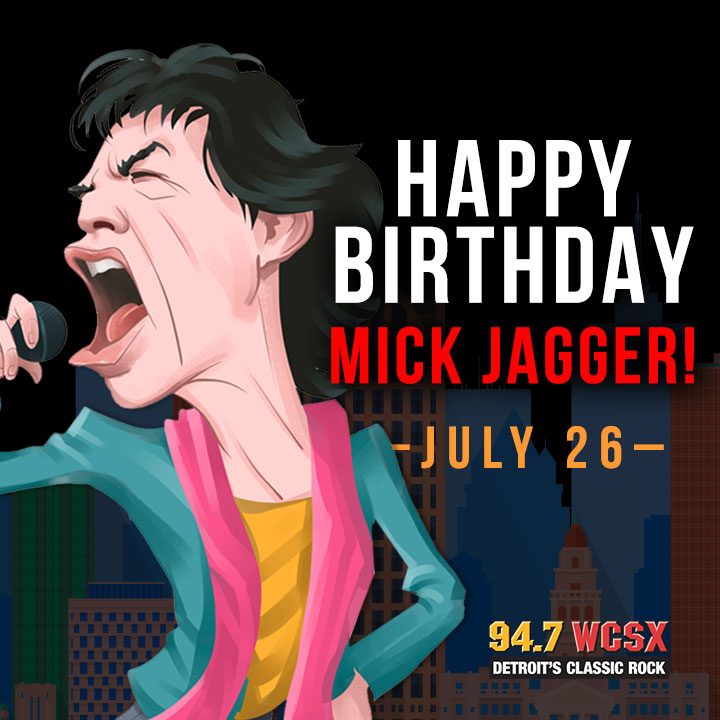 Scott Jameson, whose programming acumen has guided WCSX down the street here in Detroit these past couple years, has shown a deft touch. Rather than run from milestones, he leans into them – and even celebrates them. For Sir Paul's 80th birthday to the Stones' “Sixty,” CSX never misses a chance to high five and fist bump its audience as both party around these red letter dates.
Scott Jameson, whose programming acumen has guided WCSX down the street here in Detroit these past couple years, has shown a deft touch. Rather than run from milestones, he leans into them – and even celebrates them. For Sir Paul's 80th birthday to the Stones' “Sixty,” CSX never misses a chance to high five and fist bump its audience as both party around these red letter dates.
Here's how Scott explains it:
“Many will say, call it a career, remember the ‘better years,” but I don’t think Boomers and beyond are wired that way. They’re living Life 2.0 with a fierce determination to carry on. Our society gets too hung up on aging. Jagger turned 79 yesterday and still makes moves like- well, you know.”
Many bands have lost key players over the years, but like the music itself, most are survivors. There's an insatiable will most have to continue doing what they love. Roger Waters represents Pink Floyd brilliantly, Brian May has kept Queen afloat with brilliant Freddie Mercury replacements, and even the Grateful Dead still abide without Jerry Garcia, as the unlikely pinch hitter, John Mayer, has done more than suffice for most Dead Heads.
I liken it to attending the 50th anniversary or the 80th birthday of loved ones. You don't go to the party thinking “This sucks. They'll probably leave this earth soon.”
 No, you enjoy the time you've spent with them – throughout your past, right up through the celebration itself. You remember the good times. They bring back floods of memories of your own milestones and precious moments. Through them, you've learned important lessons about love, loss, retribution, and resilience.
No, you enjoy the time you've spent with them – throughout your past, right up through the celebration itself. You remember the good times. They bring back floods of memories of your own milestones and precious moments. Through them, you've learned important lessons about love, loss, retribution, and resilience.
In the craziest of summers, there are great concerts left to see that will be unforgettable during a time that been consumed by so much sadness, turbulence, and loss.
The legacy of Classic Rock is survival, euphoria, and joy. Those of us “in the demo” should be damn thankful we were alive to witness it. And for our children and grandchildren, and generations to come, the music will be there for them.
“Welcome back, my friends, to the show that never ends.”
Thanks to Scott Jameson, Ken Calvert, Jon Sinton, Greg Gillispie, and Beau Phillips, my Classic Rock “board of directors.”
- Three Stories From The Techsurvey Trenches - April 23, 2024
- Today's Song Lyrics: Getting Dumb And Dumber? - April 22, 2024
- Get Your Free Radio Ads? Take It To the Bank! - April 19, 2024





Great article and Classic is THE Key! The Soundtrack of our lives. The iconic tunes for decades. Now, hook up the music with live, local, informative, personality connection and Radio Continues to Rule on the vast majority of receivers.
It truly is a great radio format, Clark, because it matches up so well with personalities who are knowledgeable and have something to say.
Art knows no age. Art is timeless.
Also, and this is by no means based upon a scientific study but it seems those who have art in their lives live longer, providing they don’t succumb to the ravages of a hard lifestyle.
I certainly know those who have art in their lives…..live better.
Indeed, let’s recall how Winston Churchill replied when, during WW2, his cabinet ministers proposed curtailing public funding for the arts so that more could be allocated to defense. He is reported to have said, “Then what are we defending?”
I had not seen that quote, but it’s a great one, John. Thanks for weighing in.
I’ll take that sentiment, Ron. Thanks for that observation.
“Why wouldn’t Classic Rock be celebrated in much the same way – a hundred years from now?”
One has to only look at the ’50s — only seventy-some years in the rear view mirror now — and consider that Classic Rock runs the risk of ending up just another volume in the Time-Life nostalgia CD series sold on TV… fun to listen to, but quaint to the point of being corny. A hundred years from now is a really long time.
Here’s hoping that won’t be the case. I like Classic Rock way too much, and I want to stick around for another hundred years just to see what the hell could possibly happen next.
Great analogy, Alan. And hope that doesn’t come true. It would be a shame if this golden age of rock was reduced to a late night TV offer. Or a sale item on Amazon Prime Day.
You nailed it, Fred! These songs will be around for hundreds of years.
I’ve said it many times on my Beatles Weekly program…Lennon/McCartney are the Motzarts of our era, and ya gotta believe they’ll be around long after we’re gone.
In fact, Paul & Ringo are working on a secret new project with director Peter Jackson(Get Back director), for something “quite different”.
I have a feeling The Beatles Still Aren’t done yet!
The creativity of so many of these artists is amazing – the Beatles, Stones, Zeppelin, the Who – amazing how innovative and prolific they’ve been. I’ve seen the Beatles/Cirque show, “Love,” in Vegas a couple times – a great example of what you’re talking about, JC. Thanks for the comment.
What a beautiful column and tribute to the artists who made classic rock. There will be more and more eulogies for them in the near future, but not for the music. The classical analogy is a good one – there hasn’t been any genre since classical until classic rock that has been passed down generations…and classic rock has had a huge impact on millennials and Gen Z. I was at a concert on Monday and the median age was early 30s – we may have been the oldest people at the venue. The last song of the encore was “without You” – the Nilsson song and seemingly everyone knew it and the words as they sang along.
I used to think that a lot of the magic in classic rock was based in its connection to the generational spirit of the time. But those 20-somethings singing along have no connection to that – nor do most of the boomers who originally embraced it. A lot of elements are surely at play, but mostly, its just great effing music – so great that while boomers kids and grandkids may laugh at their lack of tech prowess, the admire and love their music.
FWIW, the life of a rock star doesn’t really lend itself to outliving actuarial tables, so we should all expect that most will leave us sooner than later. Its really heartening to see Sir Paul not acting his age on stage – and the same can be said for Bruce. And after this latest tour, if Bruce ends up needing a drug that Medicare doesn’t cover, he’ll have no trouble affording it.
I really enjoyed your comment, Bob, and not just because you appreciate my POV. You and I share the same values when it comes to this music – we’ve worked for radio station and experienced the joys of watching listeners connect with our stations, our personality, and what I firmly believe is the greatest music ever made.
As for Bruce, you have to hope he learns from this.
Thanks for contributing to this great group of comments.
With a nod to yesterday’s column, here’s hoping Bruce’s FANS can afford those drugs Medicare doesn’t cover!
When I got into the “biz” artists like The Rascals, American Breed, Five Americans, Gary Lewis and The Playboys, Johnny Rivers and the various British Invasion bands were permeating the airwaves. Paul Revere and The Raiders. Don’t forget Motown, Memphis Soul and the amazing music coming from New York’s Brill Building. The awesome creations of the musicians in Los Angeles. It was the sixties, and many were overshadowed by The Beatles. Yes, many of the Classic Rock artists are going strong into 2023 -a lot of the above mentioned artists are retired or gone, but some still live on. The “pop” musicians of this time period had influence on us all and in many ways were instrumental in the development of the various types of music enjoyed today. The term “Classic Rock” has found a way to funnel the music made by the many groups inspired by the sixties’ artists into a cohesive genre. It’s even found a way to inspire the labels of other formats like “Classic Hits” or “Classic Soul” or “Classic Alternative” – but the marketing of Classic Rock over the past 40 years or so has definitely made it the most recognizable musical path. The parts may change, but the sum of those parts still lives on. Long live…THE HITS!!
Indeed, Dave. And as you point out, all the formats and marketing mean nothing if the music isn’t great. As you point out, there was no shortage of incredible music.
Bravo !
You came to mind while I wrote it, Tom. Thanks for always inspiring me.
It’s funny, in reading your column BB King came to my mind as well and then I see how you acknowledged that late in his career, you were essentially paying to be in the same room with him.
I stopped seeing him too and I think a lot of it had to do with the size of the room he was playing. If he played a smaller club (like the memorable first time I saw him), I think he would have pulled it off but in a 2500 seat theatre, it didn’t work as well.
I also pass on the Stones anymore. Their set lists rarely contain any surprises and they play the songs double time like the limos are running backstage. If they were playing When the Whip Comes
I saw Paul seven or eight years ago on the first show of his run and I was surprised at how good he was and how fine a voice he was in. A billionaire shouldn’t have to work that hard. (You are right, he doesn’t take a sip of water) A few years later I took another shot and it was his second show that week. He wasn’t in as fine a voice and so I passed on his last tour deciding he was never going to surpass that magical night.
I guess we have to look at these performers like athletes. Albert Pujols isn’t going to light it up every night like he used to but he can still do it and when he does it is pretty special. If you catch that night, you are lucky but I won’t chance big theatres/arena’s/stadiums as much as I will smaller, more intimate rooms. I don’t want to pay to watch a TV screen.
Mike, we share a lot of the same perceptions. Here in Detroit, we’re enjoying the last hurrah of Miguel Cabrera who broke both the 3,000 hits and 500 home run barriers. He can’t drive the ball like he used to, and round-trippers are few and far between. But it’s a joy to watch this guy play the game. Enjoy your summer.
I saw Mickey Mantle hit a home run at the stadium when I was a kid. It doesn’t matter that it was in a Yankee Old Timer game. It was still a great memory and I can say I saw the Mick hit a HR!
He was a great one.
Fred,
I loved your melancholy but celebratory ode to classic rock, and it certainly speaks for so many men and women of a certain age who lived through the heyday of it all. Personally, classic rock was instrumental in making me who I am.
I was lucky enough to be a young concert production manager working the stage between 1976 – 1982. I can honestly say that most everything I learned about business I learned from Van Halen. I learned to expect the unexpected and to think on my feet from Steven Tyler and Aerosmith. I learned humility from Mr. J. Geils. And I learned from Keith Richards that life’s greatest success is just being whomever the hell you are, and being proudly passionate about it. These people spoke to me – literally as well as figuratively – and I am ever grateful for their influence on me as much as for their music
Hey Hey My My, our idols may pass but their legends will never die.
Best,
G.D. Praetorius